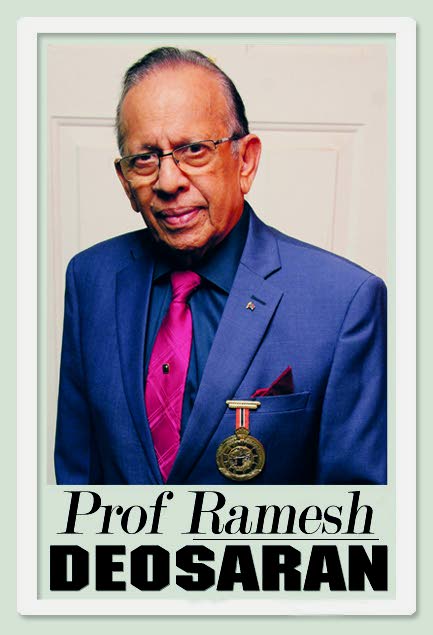New politics, old attitudes

Before any new project or policy is implemented, it is common for a feasibility study, situation analysis, or even a risk analysis to be conducted to see whether the project can be properly inserted for its purpose, or if some other things need to be done first.
In developing his ideas for “party politics” and constitution reform during the 1950s and 1960s, PNM political leader Dr Eric Williams repeatedly called for changes in the then population’s attitudes too. He was looking for context. Apparently, the historian was aware that while legal structures may be necessary to guide behaviour, they are not always sufficient.
Civic attitudes are also required for their sustainability. That concern helped inspire Dr Williams to offer our three watchwords – discipline, production and tolerance.
Today, unfortunately, it seems as if neither legal structures nor watchwords have fulfilled their objectives. The incompatibility became obvious. The work – political and intellectual – required for the country’s social, political and economic progress is more challenging now than in Williams’ time.
On August 30, 1962, striking at the attitudes required for independence, he declared at the Queen's Park Oval: “I have given to the nation as its watchwords, discipline, production, tolerance...The discipline is both individual and national; the individual cannot be allowed to seek his personal interests and gratify his personal ambition at the expense of our nation.”
So what has happened since 1962?
With grave warning to the youths, Dr Williams continued: “We must produce in order to enjoy. Wealth does not drop from the skies for any individual or any nation. Reduce production, skylark on the job, take twice as long to do a job and make it cost twice as much…You don’t pull your weight and you fatten at the expense of others.”
So what happened?
Attitudes are invisible but capable of creating powerful realities. An attitude contains not only preconceived ideas and beliefs but also emotion, a combination that makes prejudices and stereotypes so resistant to change.
Today we look back and recognise that more than political or constitutional structures are needed. It seems the capabilities, attitudes and political integrity of public officials have been lacking in many respects. The level and quality of public duty expected with political independence fell short and continues to be so. Patriotism floundered.
How can we now re-set and move forward?
Our politicians cannot be excused from the degeneration. Throughout the years, there have been so many unproductive state companies, with special-purpose ones piled on top. A bloated executive, inefficient public service with political survival so dependent on overdone patronage and inflated social welfare – all stifling the will and attitudes towards productive work.
The political system needs to build legitimacy and integrity in order to inspire civic attitudes. We cannot squeeze new wine into old bottles.
Why not, for example, review the Integrity in Public Life Act? (Act No 83 of 2000). This act has been ineffective since its very creation. Its scope is unduly wide, its powers too limited and non-compliance embarrassingly and unlawful.
The scope should be significantly reduced to include mainly those whom the commission has good reason to suspect of integrity failures, or when public complaints are submitted. It should also have prosecution powers.
What about election-campaign finance? It is very troubling that after many reputable civic proposals and political-party promises, the country is still without election-campaign finance legislation and regulations. This unregulated situation allows money for election campaigns to distort fair and free elections, while indirectly contributing to political corruption.
Money must not buy out democracy. It now seems necessary to have election-campaign financing and regulations appropriately and equitably inserted in the Constitution. Let’s save politicians from themselves. It’s either we want a healthy democracy or a failing state.
What about electoral reform?
In 1981, for example, a new party, the ONR, with as much as 91,704 votes (22 per cent) across the country, failed to win a seat, while the ULF with 62,781 votes (15 per cent) got eight seats. The PNM, with 218,567 (53 per cent), got 26 seats, with the DAC getting 15,390 votes (3.7 per cent) and two seats.
This was Westminster on parade.
Do we like it so? How could a party with 91,704 votes and 22 per cent of the voters get no seats, while another with much less – 62,781 votes and 15 per cent of voters – got eight seats?
Or, since we seem to like the Westminster system so much, should we leave everything as it is?


Comments
"New politics, old attitudes"